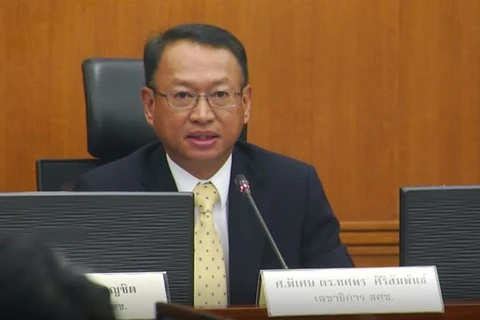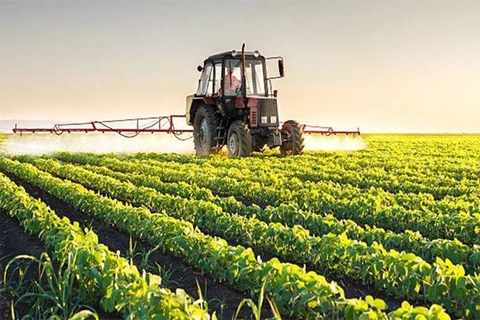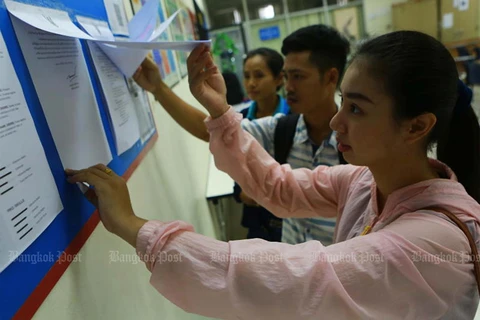Bangkok (VNA) – Thailand has unveiled a three-month stimulus package worth 51 billion THB (1.63 million USD) to boost domestic consumption and support the COVID-19-hit economy.
The stimulus package, introduced by Thailand's Centre for Economic Situation Administration, will cover 24 million mainly low-income people via two schemes.
In the first scheme, 14 million welfare cardholders will receive an extra monthly discount of 500 THB from October to December on their shopping. The budget for this scheme is 21 billion THB.
In the second scheme, worth 30 billion THB, 10 million people will get daily discounts of up to 50 THB on food, beverages and household essentials, excluding alcohol, tobacco or lottery tickets. The subsidy is capped at 3,000 THB per person. Thai citizens aged 18 or over can register online.
Registration is scheduled to open on October 16.
Despite the country’s relatively effective containment of COVID-19, the pandemic’s impact on the Thai economy has been more severe than expected and economic recovery remains elusive, with annual GDP poised to shrink by 8 percent, according to the Asian Development Bank (ADB).
The economy contracted 12.2 percent in the second quarter compared to the same period last year, the sharpest fall since the Asian financial crisis in 1998./.
VNA

























